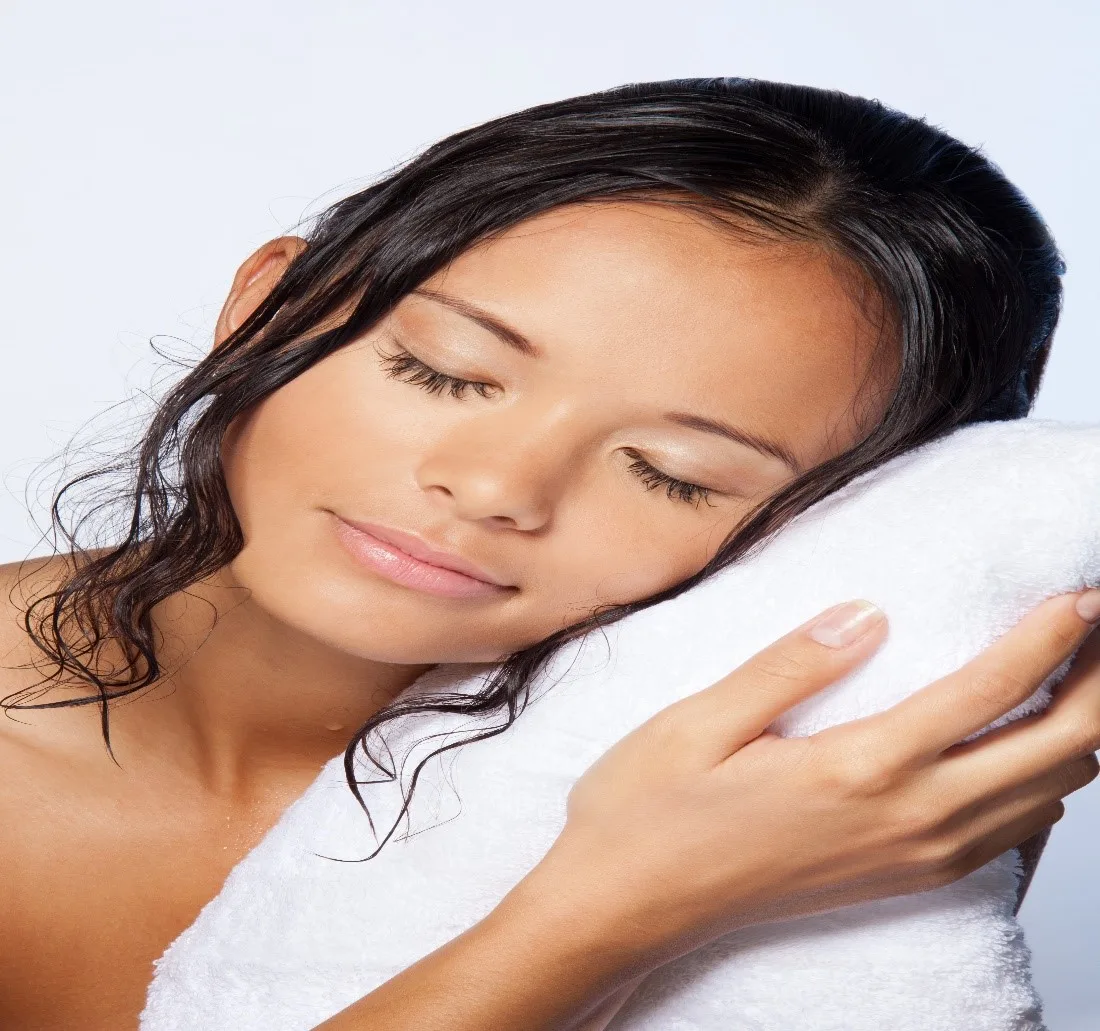Can Sleeping with Hair Wet Cause Dandruff
Various studies have shown the benefits of having a shower at the end of your day. It can be a stress buster, making you feel like you’ve washed away the tiredness of the day. But with a heavier schedule, you might end up leaving this act for the last minute with barely any time left to dry your hair. You slip into bed with wet hair, not realising the damage that it can cause, waking up with the unwanted question - does wet hair cause dandruff?
Is it bad to sleep with wet hair?

Is it bad to sleep with wet hair?
There are two main concerns of going to sleep with wet hair:
Hair breakage –
When wet hair hits the pillow, the water is instantly absorbed by the cover. Your natural hair oil and moisture transfers onto the pillow, drying out your hair in the process. On waking up, you’ll find a dry and dehydrated head of hair. Dry hair is more prone to breakage and you are likely to find hair strands littered on your pillow.
If you regularly go to bed with wet hair, it can cause a degradation in the strength of your hair and create more hair loss. Wet hair also clumps together and gets pulled when you move in your sleep. As hair absorbs water and swells up, this leads to a weakened state and further hair loss.
Fungal infections –
Research has shown that your pillow and bedding contain various forms of fungi that can cause a host of problems. When you add to it a warm and moist environment from your hair, it’s the perfect breeding ground for these fungi. The oils from your head accumulate in your pillow and can lead to a further increase of bacteria. You might change the cover, but the problem has already reached your pillow.
The dandruff causing fungus found on your scalp, Malassezia Globosa, can multiply and feed on the oil that is trapped in your hair. This can keep compounding over a period of days and eventually lead to a bad case of dandruff. This is one of the biggest concerns of sleeping with hair wet, as the bacteria can grow without any check. You aren’t going to throw your pillow into the washing machine every day.
Beyond these two, sleeping with hair wet can cause knotting, can lead to split ends, and you can wake up with frizzy hair as well. The bacteria and fungus, along with the oils, can transfer onto your face and even lead to a breakout of acne.
Can sleeping with wet hair cause dandruff often?
This condition occurs when the fungus Malassezia breaks down excess oil on your scalp into Oleic acid. Half of the world reacts to this by-product and ends up with an itchy head, redness, and oily flakes of dead skin. So, if you’re sleeping with wet hair, you allow the fungus to replicate in the warm environment and feed on the excess oil. So, this can aggravate your dandruff and force you to wake up every day with an itchy head. But it isn’t necessarily true that wet hair causes dandruff as the fungus is already present on your head.
If you combine this scenario with dry or cold weather, your scalp and hair can dry out even faster. This can possibly trigger your body into producing more oil to compensate for your scalp drying out. This in turn is more food for the bacteria, which grows faster and leads to dandruff even quicker. So, sleeping with wet hair can aggravate your ailment but isn’t the cause of dandruff appearing so often.
What can you do?
Simple answer – Don’t wash your hair at night.
But if you must wash your hair at night, there are a few things you could probably do.
-
Coconut oil application:
It can prevent your hair from soaking up the water and swelling up. This reduces hair damage and breakage during sleep. But be careful as this could be terrible for your dandruff condition. -
Using conditioners:
It can open your hair strands and untangle the knots. This leads to less breakage while you sleep and is easier on your roots. -
Dry your hair:
This is straightforward to understand and you should always aim to dry your hair before you go to bed. Squeeze out the excess water by running your hand through the hair, towel dry it after, and then use the folds of your towel to further dry smaller chunks of hair. Eventually, either wrap your hair up in a towel, allow it to air dry, or use a cold blow dryer. -
Shower early:
Showering a little earlier than bedtime gives your hair some time to dry naturally. You don’t need to shower just before you get into bed. Even using less water in the night allows your hair to dry faster. -
Try Waterproof pillow cover:
If you feel like you have no other choice but to sleep with wet hair, try a waterproof pillow cover. This prevents your oil and water from seeping into the pillow, reducing bacterial growth. Some people even use a silk or satin pillow cover, as it reduces hair breakage.
One of the main reasons why people sleep with wet hair is because they feel rushed in the morning and don’t have time to wash their hair. But your intention is defeated if you wake up with dry and itchy hair that makes you spend even more time fixing it. Sleeping with wet hair effects can be painful and time consuming.
And your question, does wet hair causes dandruff should be clarified. A good scalp shampoo is the best answer on how to remove dandruff. You can try the Head and Shoulders Neem which washes away the dandruff causing germs on your head. Or maybe the Head and Shoulders Cool Menthol 2 in 1 shampoo and conditioner, which helps get rid of dandruff and untangles your hair at the same time. If your hair has become extremely frizzy, you might consider the Head and Shoulders Smooth and Silky. Sleeping with hair wet is never a good idea, but at least now you have more information in case there is no option on that day.



